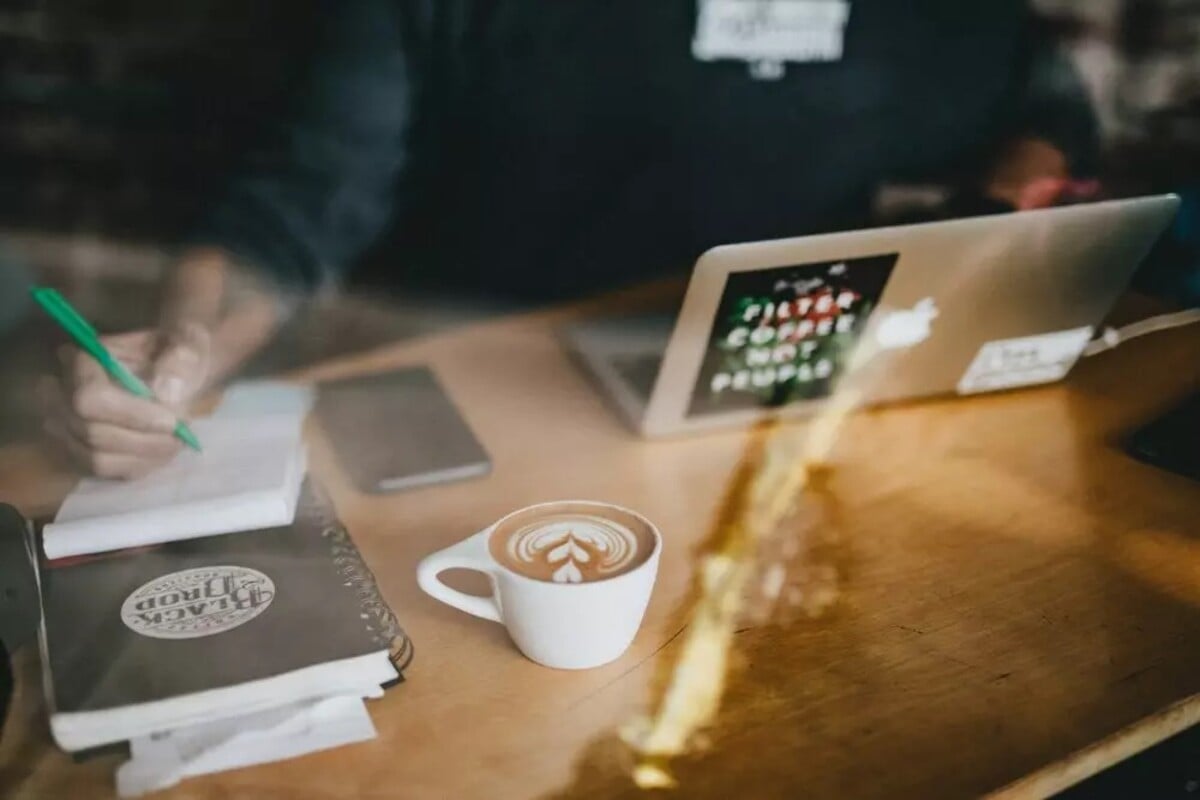The more coffee you drink, the more the neurotransmitter adenosine accumulates in your body, which makes you sleepy. When your third espresso of the afternoon wears off, adenosine doesn't even knock on the door, it just bursts in.
Someone drinks coffee in the evening and falls asleep without any problems, while others have to have their last cup no later than two in the afternoon. Coffee affects everyone differently, but the biggest mystery is how it is possible that after a cup of espresso we sometimes feel even more tired than before. After all, coffee is supposed to cheer us up and not make us tired. Two expert chemists explain this phenomenon and advise how to drink coffee to get the most out of it every time.
To explain how coffee (doesn't) work, let's start with a short lesson in biochemistry. From the moment you "open" your eyes in the morning, your body begins to follow the biological clock, which determines how long you will be alert and at what stage of the day you will start feeling the first signs of fatigue. We owe this to two important hormones whose levels rise and fall cyclically during the day and night.
"Cortisol, the level of which is highest in the morning and gradually decreases as the day passes, is responsible for the feeling of energy after waking up. During the day, adenosine enters the scene, the level of which, on the contrary, increases during the day, and thanks to it we feel tired," explains scientist Lenka Hrobárová, who studied clinical biochemistry.

Adenosine is a neurotransmitter that regulates the sleep cycle, responsible for the pleasant sleepy feeling before bed. It is a byproduct of a molecule called adenosine triphosphate, which our cells and tissues use to burn energy. When this molecule is depleted, it releases adenosine, which binds to receptors in the brain and you start thinking about the next espresso (or bed).
Although adenosine and caffeine are the biggest rivals, they are actually very similar – they are the same size and shape. It is thanks to this that caffeine can "take" the place of its sleepy rival by occupying its receptors and blocking its effect.
"If 'true adenosine' binds to adenosine receptors, brain activity slows down and the body prepares for sleep. However, if 'false adenosine', i.e. caffeine, binds, they reduce the feeling of fatigue and start to have a stimulating effect," explains Lucie Jenová, a chemistry teacher with nine years of experience, who currently educates people in a fun way on her Instagram.
Fatigue from caffeine tolerance
But how is it possible that you sometimes feel even more tired after coffee than before? Science has several explanations, but again chemistry is behind everything.
"The paradox of caffeine is that it helps increase alertness, attention and energy levels in the short term, but its cumulative or long-term effect has the opposite effect," explained Professor Mark Stein of the University of Washington, who has studied the effect of caffeine on people with ADHD, for The New York Times.
Although caffeine suppresses the effects of adenosine for a while, it still accumulates in the body. If you're already tired and your afternoon espresso loses its effect, adenosine doesn't knock on the door, it just bursts in. And you are again in a state of lethargy and longing for a warm bed. According to neurologists, you can solve this condition in only one way - sleep.

"Caffeine is also known for its addictive nature, even if it is not an addiction in the true sense of the word, as it is with drugs, where dopamine plays the main role. By 'using' caffeine frequently, the brain gradually gets used to it," says Lenka Hrobárová.
People who drink several cups of coffee a day have the biggest problem because "one is not enough." The body builds up tolerance to caffeine by creating more adenosine receptors. And the more adenosine, the greater the fatigue that you need to drive away with another cup of coffee. A vicious circle is brought into the world.
The body perceives the effect of caffeine most intensively 30 to 45 minutes after drinking coffee - that's when its effect reaches its maximum. Most of the caffeine is broken down within an hour and immediately adenosine starts working, which is why our favorite black juice sometimes doesn't "do it" for us. However, it usually takes longer for the body to completely eliminate caffeine.
"Coffee fatigue" can even extend into the next day. A study a few years ago showed that people who drank a lot of energy drinks during the day felt much more exhausted the next day.

According to Lucie Jenová, sugar can also be responsible for the feeling of tiredness after coffee. If you like to sweeten your coffee, after drinking it, the sugar level in your body will rise sharply. Sugar in the body acts immediately, faster than caffeine. When sugar is used up in the body, there is a drop in energy.
According to Jen, the third cause can be dehydration, since consuming higher doses of caffeine leads to more frequent urination. "More frequent urination can dehydrate the body, which increases heart activity and lowers blood pressure, which leads to a feeling of fatigue, slowness or sleepiness," explains the chemistry teacher.
Lenka Hrobárová adds that, according to some studies, milk and its amino acids can also play a role, which can increase feelings of fatigue. Higher levels of nervousness and anxiety after higher doses also play a role.
Why are some people not affected by coffee at all?
Coffee seems to have no effect on certain people. According to Lenka Hrobárová, it is related to a liver enzyme called cytochrome P450, which is responsible for metabolizing caffeine.
"Some have been given high activity of this enzyme, so they metabolize caffeine quickly and need more of it to get the effect of energy. In others, the enzyme is lazier and caffeine works longer," says the biochemist. How many coffees you can handle before your hands start shaking is also influenced by your gender, weight and lifestyle.

Despite tolerance, one must remember that a lot of everything is harmful. Excessive doses of caffeine can cause an increase in blood pressure and heart palpitations, insomnia, digestive problems, stronger feelings of stress and anxiety. The WHO has set the maximum safe dose of caffeine at 400 mg per day, which is equivalent to about three cups of coffee or eight cups of green tea. If you stick to this limit, nothing bad should happen to you.
Patients with cardiovascular diseases should be especially careful, for whom coffee should be an occasional treat rather than a daily stimulant.
Coffee before nine is a "waste of caffeine"
If you tend to feel lethargic after an afternoon coffee, another cup probably won't help you. In such a situation, experts recommend taking a nap, exercising or going out into the sun for a while. Sometimes it helps to eliminate caffeine completely for a few days and then gradually add it back.
A useful tip is also not to drink coffee right after waking up. Researchers have found that cortisol levels peak about 30 minutes after waking up. So it works a bit like our "personal alarm clock" and caffeine then has a negligible effect on us. Making coffee while half asleep is therefore a waste of time, says Lucie Melicherová. It is better to wait until the cortisol level drops before approaching the coffee maker.
"Drinking coffee between eight and nine in the morning is 'a waste of caffeine'," explains Melicherová. "The body doesn't use it and you develop a habit, a tolerance to caffeine. If you wake up around seven in the morning, treat yourself to morning coffee around nine to ten, i.e. at least two hours after waking up, then it will have the desired effect," she advises.

Watch out for coffee in the evening. "Caffeine can work for up to six hours, so it's good to plan your last coffee of the day a few hours before going to bed," adds Lenka Hrobárová.
Although it is said that we should only drink coffee until three in the afternoon, this time is also very individual. For some, it takes only one and a half hours to break down caffeine, for others it takes up to nine. Therefore, the old saying "know thyself" (that is, your liver enzymes) applies.
Less sugar in your coffee, as well as less sweet cream, syrups and ice cream, and drinking a glass of water with every cup of coffee (it's not for nothing that they bring it to you automatically in any good cafe) can also help.
Ultimately, the most effective solution is quality sleep - if you wake up rested in the morning, coffee will be your servant and not the other way around.





